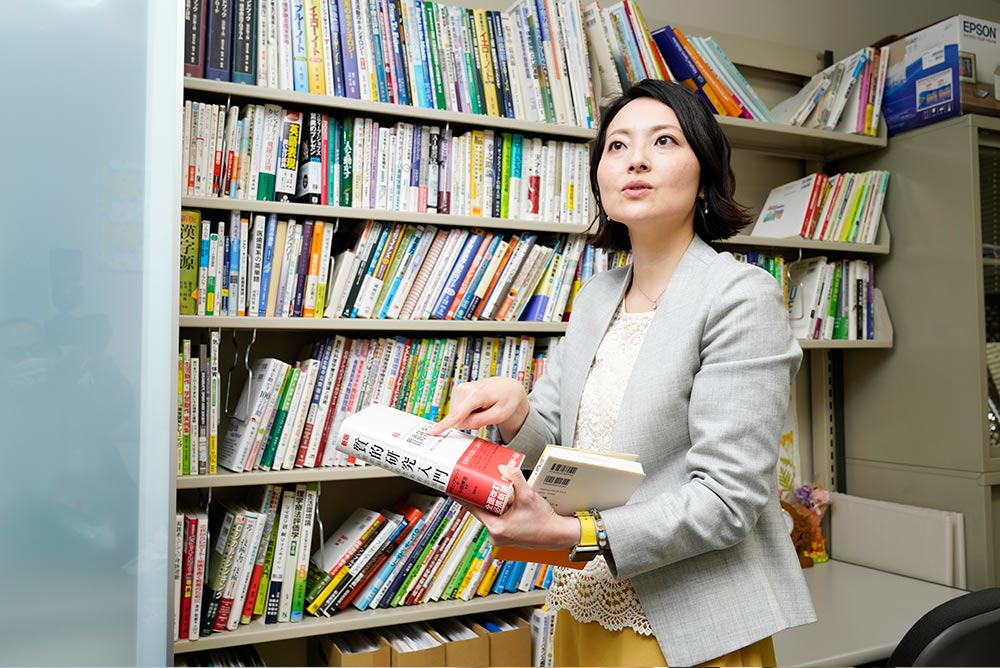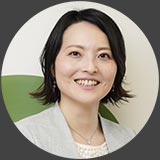Associate Professor
Faculty of Policy Management
After Tokyo was selected to host the 2020 Olympic and Paralympic Games, various efforts were launched in Japan to promote sports for people with disabilities. Despite this, however, community-level participation in disabled sports has remained low. This kind of unfavorable situation surrounding disability is not limited to inadequate athletic opportunities, with many people with disabilities also faced with myriad challenges in obtaining employment and receiving education. Associate Professor Kotomi Shiota is known as a passionate advocate of the empowerment of people with disabilities as a key to a better society. She is vigorously developing research activities, aiming to create a society where those with disabilities play an integral role in contributing to the development of society.
Developing Indices to Encourage Employment of People with Disabilities in Agriculture
Many Japanese companies view employment of people with disabilities as an “obligation” or a “cost factor.” Those with disabilities have the potential to contribute to an employer’s profits, but at present few have an opportunity to fulfill their potential, principally due to a lack of appropriate indices for understanding the characteristics of different disabilities, controlling workloads, and developing personnel recruiting and evaluation standards. This is a nationwide issue affecting all industries and is a major inhibitor of the employment of people with disabilities.
To address this situation, I am developing indices to facilitate job matching, focusing on people with intellectual/developmental disabilities and the agricultural sector.
Japan’s agricultural sector is facing a serious labor shortage at the same time as people with intellectual or developmental disabilities have difficulties finding a job, even if motivated and able to work. Some farm work requiring careful handling, such as strawberry picking, is difficult to mechanize, while some people with disabilities have an extraordinary ability to concentrate for prolonged periods on painstaking tasks. Having noted this situation, I analyze the characteristics of specific farm activities and individual disabilities to create indices to be referred to in job matching, aiming to provide a solution to both parties.
Benefits to those with disabilities from engaging in agriculture are not limited to employment and earning a living. They will also develop a healthy daily routine—getting up early, doing physical activities at work, and sleeping properly at night. This is also expected to help improve their dietary habits. Adequate physical activity and an appropriate diet are key to better health. Such improvements will be beneficial not only to those with disabilities themselves, but also to society as a whole over the long run, particularly through reduced medical costs.
Why Do People with Developmental Disabilities Appear to Move Awkwardly?
As a physical science researcher, I am studying the behaviors of people with developmental disabilities, including the properties of optokinetic responses associated with the stereognostic sense.
Part of my research has been directed at supporting children with developmental disabilities in building athletic abilities at special schools. From observations of target children, I have found that they have difficulty mimicking the motions of other people and reproducing stereo images of objects.
Mimicking the motion of something involves a series of processes: from visual input to information processing in the brain and then to physical output. Even people with developmental disabilities have a variety of characteristics: Some are good at physical performance and some have no problems with body movements. People with disabilities are generally characterized by inefficient or often “clumsy” body movements, and it is generally considered that it is the physical output phase that is responsible for this clumsiness. My assumption, however, is that the problem is associated not only with a physical factor but also with the visual input of the recognized motion and stereo image of an object. Based on this assumption, I am working on motion analysis using optokinetic response measurement systems.
My plan is to apply the results of this research to develop new test methods for developmental disabilities and invent unconventional and innovative approaches to improving the motion control function. I am also looking to expand applications to research on employment support for people with disabilities, specifically, for quantitative assessment of the cognitive and physical capacity of individuals with disabilities, which is essential to job matching.
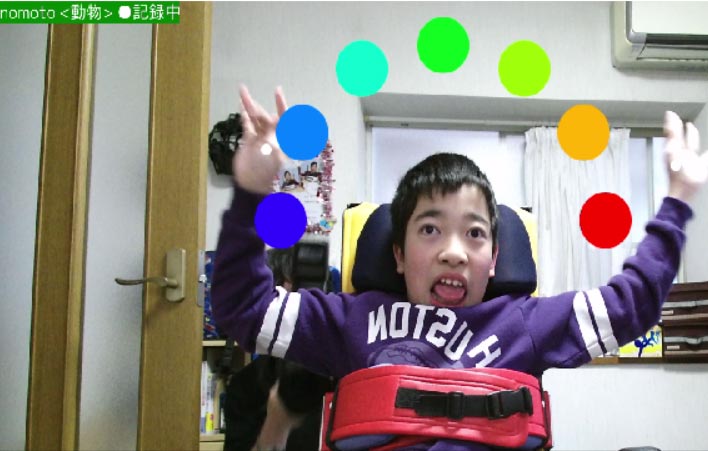
Education-Business Joint Research for Employment of People with Disabilities
I have been organizing a number of joint research projects involving students and external enterprises. In one major example, our study group collaborated with a global firm to design a workplace where people with and without disabilities can work together efficiently. We held a meeting to present our research results and also hosted Abi & Spo 2020, an online event for exchanges between those with and without disabilities. Other projects include a joint study with a railway company on barrier-free services and a program planned with one of the worldwide partners of the Olympic and Paralympic Games to build a community environment accommodating athletic activities for people with disabilities. The disabled workforce will grow in years to come, making it more likely to find employees with and without disabilities in the same workplace. These projects give students an opportunity to learn about situations and issues faced by workers with disabilities, which I hope will help them support their colleagues in the disability community in an appropriate manner after they graduate.
In 2020, universities were forced to change the way they provided courses as a result of the COVID-19 pandemic. At SFC, all classes, including the physical education (PE) classes that I was in charge of, were taught online.
The importance of PE has increased for students, who are having their physical activity constrained to avoid infection risks. In an effort to address this issue, I collaborated with IT-related researchers to jointly develop SFC GO, an app that enables real-time exercise intensity and pedometer measurement, and used it in my class. Incorporating a social media function for sharing activity reports and a competition based on points earned through using the app, the tool was designed to make exercise fun for students while giving them a sense of connection with their peers.
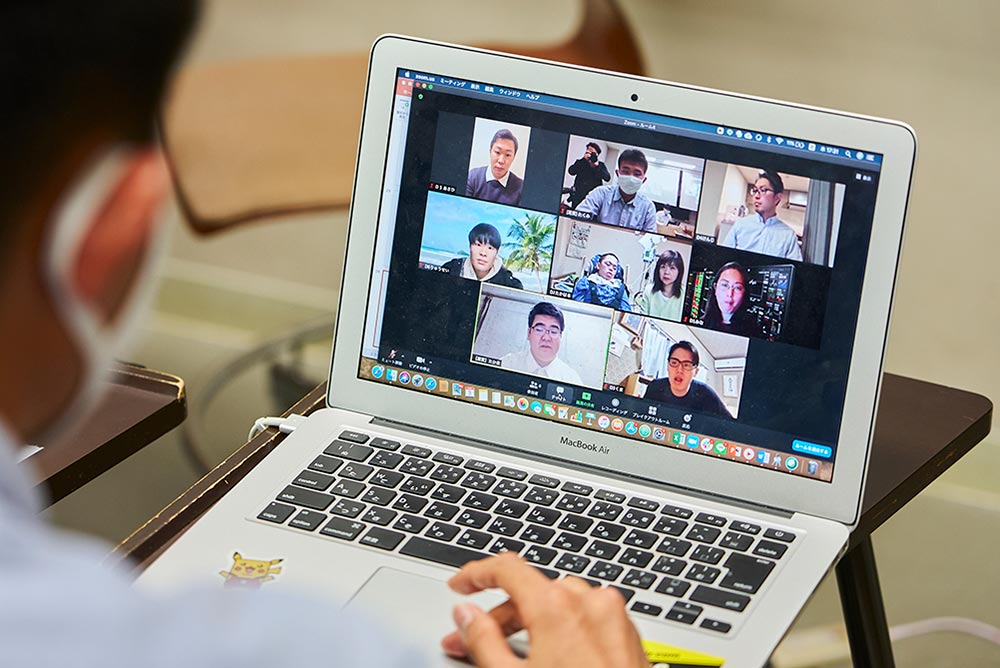
Supporting Sports and Remote Work for People with Disabilities
In Japan, there are few community settings or places in the neighborhood where people with disabilities can go for sports and recreation or to enjoy leisure activities. To address this issue, I established the Institute of Health and Community Sports which is engaged in the development of events and instructors for disabled sports and adapted sports Seeking to help individuals improve or maintain their health and better enjoy their life, the institute has been expanding activities to create settings that allow many citizens, with or without disabilities, to participate in sports together.
In 2020, I formed a group of the Institute of Health and Community Sports to launch a venture supporting the remote-work employment of people with severe disabilities. Profits gained by the company are returned to the institute to enable the non-profit organization to sustain operations with minimal financial aid. This system represents a hybrid-type social business enterprise, a model that is becoming mainstream in the United States.
These off-campus activities reflect my strong policy of placing importance on practical operations. It is important to read lots of research papers to develop logical concepts, but it is just as important to look for real-world solutions to social issues clarified by such papers, and for this purpose, studying actual situations in the field is essential. In order to effectively link the three roles of researcher, educator, and corporate manager so as to be able to offer solutions to social issues, I will continue to stand firm on this field-oriented policy.
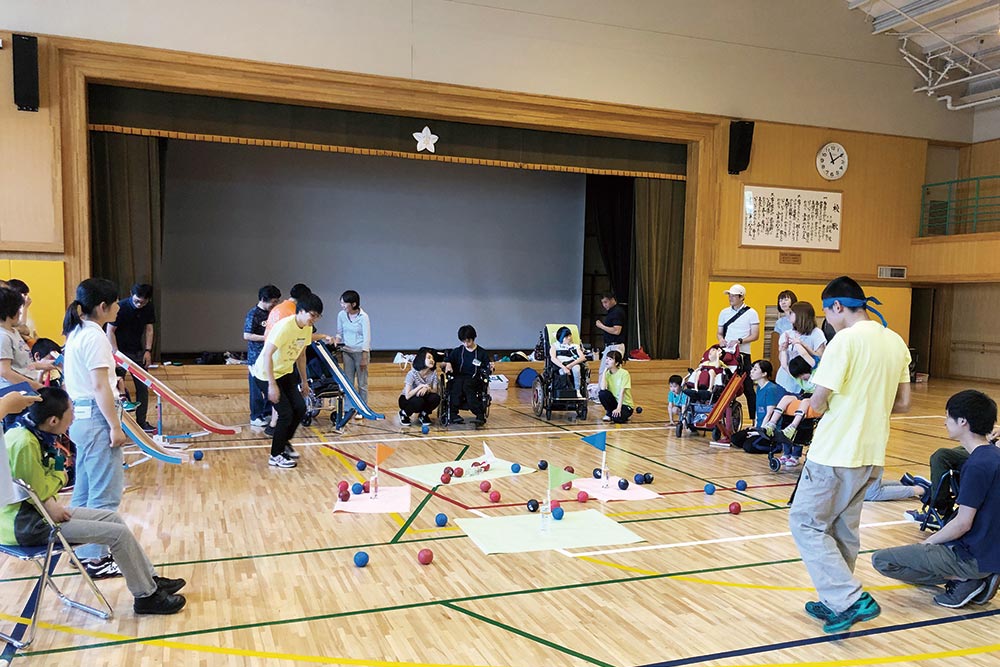
Hoping for a Society Where my current research theme Will Be Unnecessary
Today’s social issues are complicated. For example, issues related to supporting the employment of people with disabilities span a wide range of areas from management, information, and education to medical care. To deal with such multifaceted issues, collaboration among researchers from different fields of specialization is imperative. To promote high-quality interdisciplinary projects, the key is to provide strong leadership capabilities in order to serve as a hub for numerous participating researchers. I think Japan’s research sector lacks such multidisciplinary management capabilities and am therefore aiming to serve as a hub to connect researchers and stakeholders. Thus, I hope to first help increase the research capacity of SFC, and then of Japan overall.
I wish my current area of study was not needed anywhere in the world. This is my ultimate goal. In an ideal world, people with disabilities would be able to participate in society, whether in the realm of education or employment, receiving necessary support on a personal basis rather than from special social systems, and could pursue their individual goals as ordinary members of society. Then, my studies would no longer need to exist. Hoping for such a world, I am working at increasing public understanding of disability by promoting sports and improving the employment and education environment for members of the disability community, while looking to contribute to the development of human capabilities to innovate solutions to social issues. I hope my work can help create a society where we all respect each other’s values and can all enjoy a fulfilling life.
